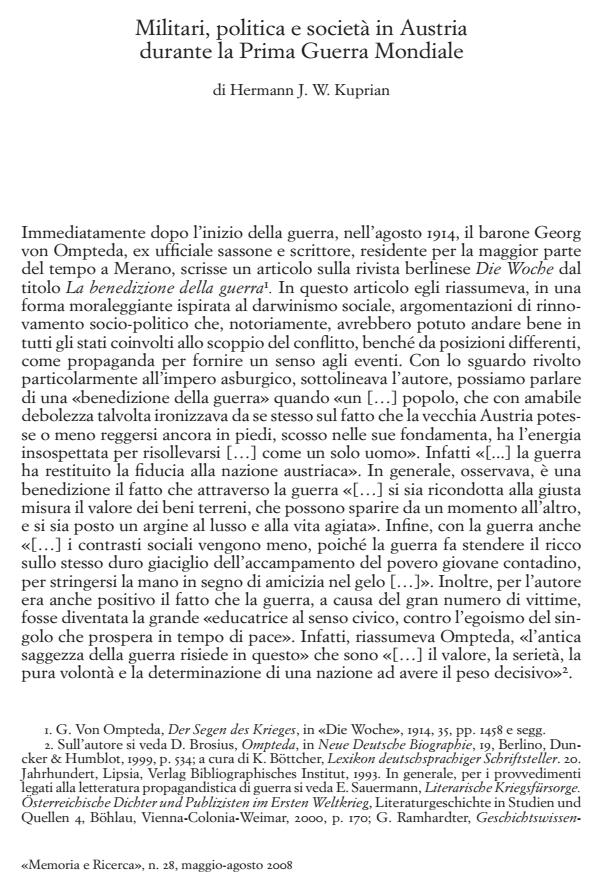Militari, politica e società in Austria durante la Prima Guerra Mondiale
Titolo Rivista MEMORIA E RICERCA
Autori/Curatori Hermann J. W. Kuprian
Anno di pubblicazione 2008 Fascicolo 2008/28 Lingua Italiano
Numero pagine 18 P. 55-72 Dimensione file 134 KB
DOI
Il DOI è il codice a barre della proprietà intellettuale: per saperne di più
clicca qui
Qui sotto puoi vedere in anteprima la prima pagina di questo articolo.
Se questo articolo ti interessa, lo puoi acquistare (e scaricare in formato pdf) seguendo le facili indicazioni per acquistare il download credit. Acquista Download Credits per scaricare questo Articolo in formato PDF

FrancoAngeli è membro della Publishers International Linking Association, Inc (PILA)associazione indipendente e non profit per facilitare (attraverso i servizi tecnologici implementati da CrossRef.org) l’accesso degli studiosi ai contenuti digitali nelle pubblicazioni professionali e scientifiche
Soldiers, politics and society in Austria during the WWI - This article tackles the theme of the militarization of the Austro-Hungarian society during WWI and of the role played by the Common Army in managing society during the war. The war, looked forward to by many people as an opportunity to reinvigorate the declining imperial society and to fight the centrifugal nationalistic movements, gave the military a chance to act as the arbiters of the destiny of the Empire. However, the exceptional legislation and the possibility which the headquarters were offered to decide the fate of the Monarchy were unable to prevent the latter’s disintegration. On the contrary, the hardness of the war regime, the widespread poverty and hunger, and the inability of the military hierarchies to meet the needs of the population, accelerated the loss of loyalty of the various nationalities to the Crown and the unity of the Monarchy, even if the Common Army remained faithful and united all throughout.;
Hermann J. W. Kuprian, Militari, politica e società in Austria durante la Prima Guerra Mondiale in "MEMORIA E RICERCA " 28/2008, pp 55-72, DOI: